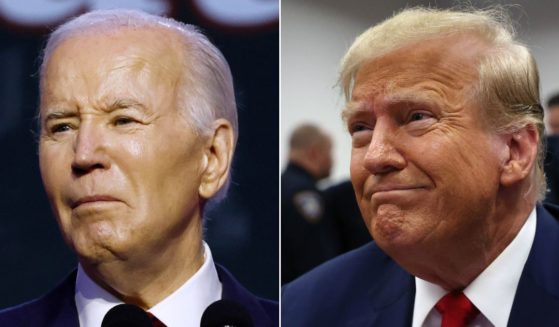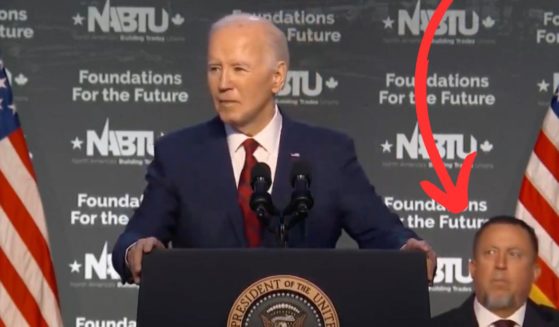Biden Defends His Claims That Social Media Platforms Are 'Killing People'
President Joe Biden tempered his assessment that social media giants are “killing people” by hosting misinformation about the COVID-19 vaccines on their platforms, saying Monday that he hoped they would not take it “personally” and instead would act to “save lives.”
While companies like Facebook defend their practices and say they are helping people around the world access verified information about the shots, the White House says they have not done enough to stop misinformation it believes has helped slow the pace of new vaccination in the U.S. to a trickle.
It comes as the U.S. sees a rise in virus cases and deaths among those who have not gotten a shot, in what officials call an emerging “pandemic of the unvaccinated.”
Speaking at the White House, Biden insisted he meant “precisely what I said” when he said Friday of the tech giants that “they’re killing people.” But he said the point of his rhetoric was to ramp up pressure on the companies to take action.
“My hope is that Facebook, instead of taking it personally that somehow I’m saying ‘Facebook is killing people,’ that they would do something about the misinformation,” Biden said.
“Facebook isn’t killing people. These 12 people are out there giving misinformation, anyone listening to it is getting hurt by it, it’s killing people. It’s bad information.”
“I’m not trying to hold people accountable. I’m trying to make people look at themselves, look in the mirror,” Biden said, adding, “Think about that misinformation going to your son, your daughter, your relative.”
In the view of the administration, chastising the social media companies — who have come under mounting scrutiny in Washington over not just disinformation, but also antitrust and privacy practices — is a proxy for criticizing the originators of disinformation themselves.
To avoid amplifying falsehoods, the White House has generally sought to avoid engaging directly with those spreading misinformation.
Last week, Surgeon General Vivek Murthy declared misinformation about vaccines a deadly threat to public health.
“Misinformation poses an imminent and insidious threat to our nation’s health,” Murthy said during remarks Thursday at the White House.
“We must confront misinformation as a nation. Lives are depending on it.”
Murthy said technology companies and social media platforms must make meaningful changes to their products and software to reduce the spread of false information while increasing access to authoritative, fact-based sources.
Too often, he said, the platforms are built in ways that encourage the spread of misinformation.
“We are asking them to step up,” Murthy said. “We can’t wait longer for them to take aggressive action.”
Facebook on Friday responded to Biden’s attack, with spokesperson Kevin McAlister saying, “The facts show that Facebook is helping save lives. Period.”
The company also released a blog post saying its internal research showed it was not responsible for Biden’s missed vaccination goal.
“The data shows that 85 percent of Facebook users in the US have been or want to be vaccinated against COVID-19. President Biden’s goal was for 70 percent of Americans to be vaccinated by July 4. Facebook is not the reason this goal was missed.”
Brendan Nyhan, a professor of government at Dartmouth College who focuses on politics and health care, said Facebook “should absolutely be held accountable for allowing vaccine misinformation to spread.”
“With that said, we should be careful about assuming that the circulation of misinformation online is a cause of hesitancy rather than a consequence,” he added.
“It’s very difficult to show the relationship between misinformation on social media and vaccine hesitancy directly. We don’t have good measures of what people see on social media or any ability to link it to their vaccination behavior. And even if we see correlations in the data, these could be spurious rather than causal — people who aren’t going to get vaccinated are presumably more likely to be exposed to negative and false information about the vaccine.”
That said, Nyhan added that there is some evidence that exposure to misinformation can reduce a person’s intention to vaccinate immediately after viewing the misinformation.
White House press secretary Jen Psaki insisted Monday, “We’re not in a war or battle against Facebook — we’re in a battle with the virus.”
But she ramped up pressure on the companies to share information on how many Americans are exposed to misinformation on their platforms and how their secretive and powerful algorithms promote false content to users.
“Do you have access to information from these platforms as to who is receiving misinformation?” she asked. “I don’t think that information has been released. Do you know how the algorithms are working at any of these platforms? I don’t think that information has been released.”
The Western Journal has reviewed this Associated Press story and may have altered it prior to publication to ensure that it meets our editorial standards.
Truth and Accuracy
We are committed to truth and accuracy in all of our journalism. Read our editorial standards.












